There are very few languages besides Arabic that can express emotions in the form of poetry.
There’s a reason why Arabic poetry is as old as the Arabic language, which is around 2000-2500 years. It’s because Arabs used the Arabic language to pioneer Arabic poetry in romance and war and other topics like satire, pride, and elegy.
Although there are many Arabic poetry ages, historians divide it into two major parts: pre-Islamic poetry (Jahiliyya) and post-Islamic poetry. The word ‘Jahiliyya’ is interesting because it translates to “Age of Ignorance”. It is because major themes of Arabic poetry were tribal conflicts, polytheism, drinking wine, and obscene descriptions of women.
When Islam arrived in the Arabian Peninsula, Arabic poetry’s major themes shifted to praise Islam, the Prophet Muhammad, and religious devotion. In fact, the Quran, the Holy book of Muslims, itself was communicated in a stream-of-consciousness, poetic form.
However, such differentiations don’t mean such themes were prevalent in the strict form in pre-and post-Islamic periods. Some themes like tribal pride, revenge, inciting war for tribal pride, recounting heroic deeds, love, loss, and belonging are common in both ages. We will discuss poetry in Arabic about love, particularly below.
Over time, Arabic poetry has evolved to use themes like social issues, politics, and philosophical reflections.
Let’s discuss some of the best Arab poets who mastered the art of Arab poetry to reflect the vast spectrum of human experience.
The table below should give you an overview of the ages of Arab poetry.
| Poetry Age | Time Period | Key Features | Notable Poets |
|---|---|---|---|
| Pre-Islamic Poetry (Jahiliyya) | Before 7th century CE | Oral tradition, tribal themes, poetic contests, diverse topics | Antara ibn Shaddad, Imru' al-Qais |
| Islamic Golden Age | 7th to 13th centuries | Islamic themes, panegyric poems, continued development of poetic forms | Al-Farazdaq |
| Abbasid Period | 8th to 13th centuries | Flourishing of Arabic literature, diverse themes, exploration of new poetic forms | Abu Nuwas, Al-Ma'arri |
| Andalusian Poetry | 8th to 15th centuries | Flourishing in Al-Andalus, poetic contributions despite political upheavals | Ibn Hazm, Ibn Zaydun |
| Modern and Contemporary | 20th century to present | Evolving themes, addressing contemporary issues, global recognition | Nizar Qabbani, Mahmoud Darwish |
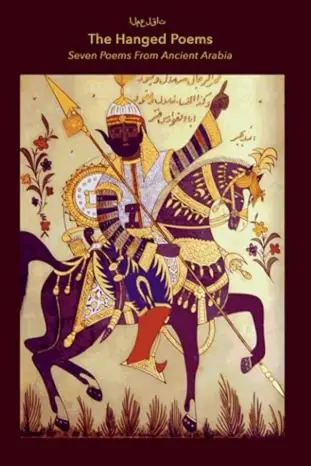
Imru’ al-Qais Junduh is one of the earliest Arabian poets who lived in the late fifth and early sixth centuries. In fact, he is widely considered the father of Arabic poetry. He was also the last King of the Kindah tribe.
He was the youngest son and started poetry while he was still a child, much to his father’s disdain. When he grew up, he lived a scandalous lifestyle of drinking and chasing women. For that, his father dispelled him from the kingdom.
When his elder brother assassinated his father, Imru al-Qais vowed to avenge his father’s death.
Here’s a verse about taking revenge and abandoning alcohol and women- themes we discussed in the introduction.
الخَمر علي حرام والنساء حتى أقتلَ من بني أسدٍ مائة وأَجُزَّ نواصيَ مائة
Alcohol is forbidden for me, and so is women until I kill a hundred from Bani Asad a hundred and I cut off the foreheads of a hundred.
However, not all his poetry is about revenge. In his poetry, we see vivid imagery, emotional depth, and the harsh realities of desert life. Here’s a verse of his vivid imagination.
كأنَّ أباناً في أفانينِ ودْقِهِ
كَبيرُ أُناسٍ في بِجادٍ مُزَمَّلِ
The mount Aban, covered with the rubbish which the torrent has rolled down,
looks like a venerable chief wrapped in a striped mantle.
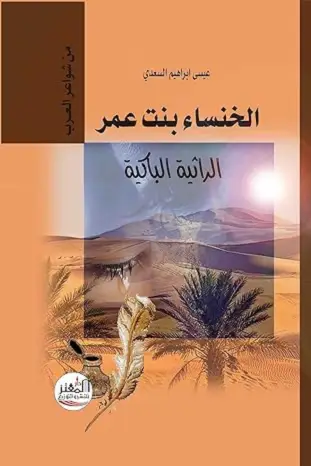
Al-Khansa is an interesting mention because she lived shortly before and after the advent of Islam. So, her life and poetry provide a fascinating glimpse into the social fabric of her era. Al-Khansa had already earned a reputation as a poet before embracing Islam as an eulogy performer. It is no surprise that her eulogy writing and oral performances are considered one of the finest in Arabic elegies.
In her eulogies, we find expressions of grief and loss, mainly the loss of her two brothers, Mu’awiyah and Sakhr, who died in tribal skirmishes. This personal tragedy influenced her work. Besides writing about tragedies, rich imagery and rhetorical skills are other common themes.
Her ability to combine the personal with the universally relevant themes of time, loss, and mourning makes her one of the finest female Arabic poets.
One of her lines exemplifies this blend of personal grief with universal appeal.
Then Time came,
and harvested its malice.
Time never fails.
There’s an interesting story about her in the book Arab Women Writers.
It goes like that the poet Al-Nābighah al-Dhubyānī told Al-Khansāʾ she was “the greatest poet amongst those with breasts,” to which she shot back: “I am the greatest poet amongst those with testicles, too.”
She later converted to Islam, and the Prophet Muhammad admired her poetic talents and even rated her higher than Imru’ al-Qais. Despite the shift in Arabia’s cultural and religious landscape following Islam, Al-Khansa’s legacy as a poet remained strong.
You can read her Arabic poetry’s English translations Loss Sings by James Montgomery.
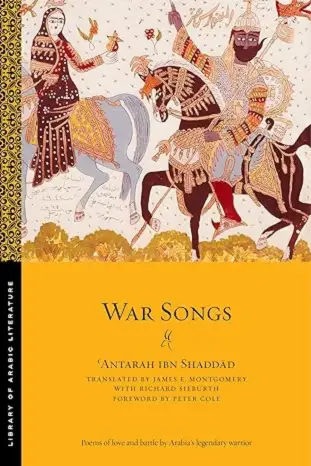
Antara Ibn Shaddad was a pre-Islamic Arabian poet born around 525 AD to the Banu Abs tribe. He is one of the few celebrated poets whose work appeared in mu’allaqat, one of the celebrated “Hanging Odes,”. These mu’allaqat were reputedly hung on or near the Kaaba in Mecca.
His story of being an extraordinary warrior, unrequited love, and a poetic talent describing both experiences makes him a legendary poet in Arab literature. Unlike his contemporaries, in Antara’s poetry, we see the deep exploration of personal valour, tribal loyalty, and a yearning for love.
All these themes have an interesting background. Antara Ibn Shaddad’s father was a noble Arab, but his mother, Zabiba, was an Ethiopian slave, which made Antara a slave. This status subjected him to many hardships, but it also set the stage for his legendary exploits as a warrior.
When a rival tribe invaded tribe Banu ʿAbs, it was time for Antara to set himself free. He offered his father to defend Banu ʿAbs to prove his worth and win the freedom and love of his cousin Abla.
Abla is a green rush
That feeds beside the water.
But they have taken her to Oneiza
And my tribe feeds in lazy Ghailam valley.
They fixed the going, and the camels
Waked in the night and evilly prepared.
I was afraid when I saw the camels
Standing ready among the tents
And eating grain to make them swift.
I counted forty-two milk camels,
Black as the wings of a black crow.
White and purple are the lilies of the valley,
But Abla is a branch of flowers.
Who will guide me to the dwelling of Abla?
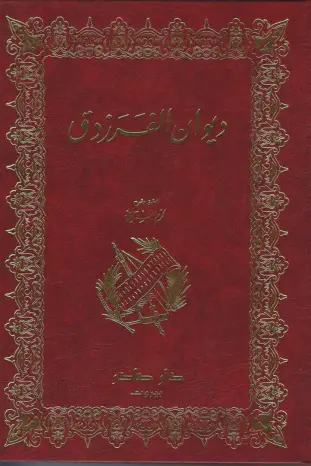
Al-Farazdaq was a 7th-century Arab poet known. He is one of the wittiest poets of Arabic literature who gained prominence during the cultural flourishing period of Umayyad (661–750 CE). Al-Farazdaq’s life and poetry were influenced by his time’s societal and political dynamics. He also had a rivalry with another great poet of the era, Jarir ibn Atiyah.
Al-Farazdaq specialized in the genre of hija (satire). He wrote hija not just for personal vendettas but also about the complex tribal politics and politics of his day. His satirical verses often targeted political figures and contemporaries and about his fierce loyalty to his tribe.
Apart from satire, Al-Farazdaq also excelled in writing panegyrics, particularly in praise of Ali ibn Abi Talib, the fourth caliph. This affinity for Ali placed him in conflict with the Umayyad authorities. The King even imprisoned him for writing panegyric for Zayn al-Abideen.
Al-Farazdaq remains one of the fines of Arabic poetry whose satirical poetry even angered Caliphs. However, it was his panegyrics which placed him in direct conflicts with the Caliphs and led to his imprisonment.
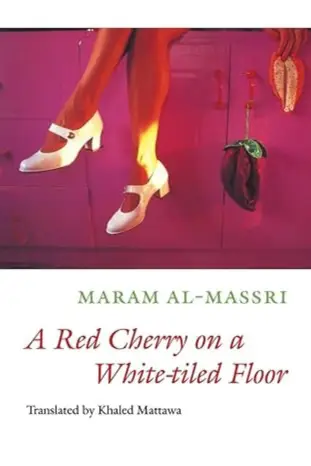
It’s time for some contemporary Arab poets. Maram Al-Massri is a Syrian poet known for her themes of love, exile, feminism, and the exploration of female identity and desire. Al-Massri studied English literature at Damascus University before moving to Paris, France, in the late 1980s.
Al-Massri’s poetry is characterized by its simplicity, directness, emotive strength, and her experiences as a woman living in exile. “Red Cherry on the White Floor” is one of her celebrated works and has been translated into several languages. In this collection, she wrote Arabic poetry about love, loss, and longing through a feminine lens.
In her poetry, Al-Massri used an intimate tone, exploring the body, sensuality, and gender politics. This range of themes not only makes her a unique Arab feamle poet but also challenges traditional boundaries within Arabic literature.
Desire preoccupies me
and my eyes shine.
I stuff morals
in the nearest drawer.
I switch into a devil
and blindfold my angels
just
for a kiss
To Love
To love
is to give another
the possibility of doing without you
To love, it is to prepare yourself
to be abandoned
Maram al-Massri has written over 15 Arabic poetry books, and she has received several awards, including Antonio Viccaro International Poetry Prize and the Dante Alighieri.
If you want to explore poetry in Arabic about love, you should definitely read her works.
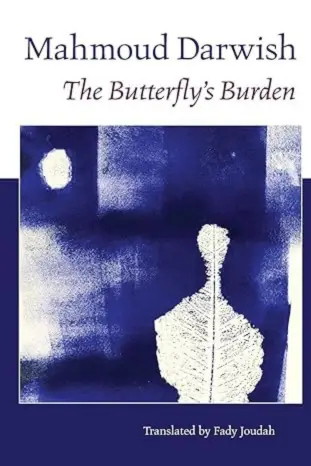
Mahmoud Darwish was/is one of the most celebrated Arabic poets and is well-known outside the Arabic world. His work profoundly influences the Arab world and beyond for his writings about Palestine’s sorrow, beauty, and resilience.
Themes like identity, exile, loss, and love are prominent themes in his poetry.
تقول: متى نلتقي
She said: when will we meet?
أقول: بعد عام و حرب
I said: A year after the war ends
تقول: متى تنتهي الحرب
She said: When will the war end?
أقول: حين نلتقي
I said: When we meet
He was born in 1948, but he and his family had to flee to Lebanon during the Nakba (“catastrophe”). They secretly returned to Israel a year later, living in the state as “internal refugees.” This sense of displacement and loss of homeland shaped Darwish’s writing and political outlook.
Darwish published his first poetry book, “Asafir bila ajniha” (Wingless Birds), at 19. His early work had revolutionary tones that echoed the nationalist sentiments of the Palestinian people.
However, his poetry became more introspective with time, but the themes of identity, displacement, and longing for home remained central.
Among his most famous works are “Memory for Forgetfulness“, “Why Did You Leave the Horse Alone?” and “In the Presence of Absence,” which reflect his engagement with the existential implications of exile and loss.
A STATE OF SIEGE (Fragments)
Here, on the slopes of hills,
watching sunsets,
facing the cannons of time,
here by orchards with severed shadows,
we do what prisoners
what the unemployed do:
we nurse hope.
Darwish also wrote Arabic poetry about love, which is frequent in his poetry collections.
In love’s quenching river, we find our flow,
Two souls entwined in an eternal glow.
In your eyes, I see the stars align,
With every beat, our hearts combine.
Darwish’s Arabic poetry books have won several awards, including the 2001 Prince Claus Award. His poetry resonates deeply with people from Palestine and other regions facing oppression to challenge injustice.
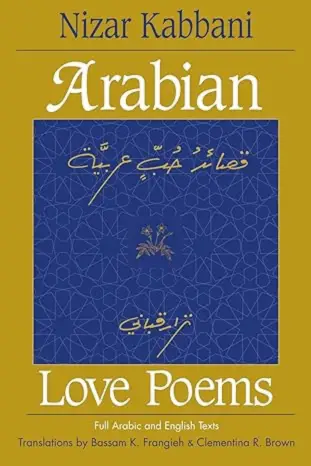
Nizar Qabbani was a Syrian diplomat and poet renowned for his contributions to modern Arabic literature. He was born into a notable heritage, so his poetic journey began at an early age. The tragic loss of his sister deeply influenced his poetry and shaped his poetic voice.
Over time, his poetry evolved to themes of love, feminism, and political revolt.
Qabbani’s poetry fundamentally challenged the traditional norms of Arabic culture and poetry.
He is celebrated for straightforward expression of physical and emotional love, writing with controversial candour in the Arab world. Here’s some of my favourite poetry in Arabic about love by Nizar Qabbani.
Every Time I Kiss You
Every time I kiss you
After a long separation
I feel
I am putting a hurried love letter
In a red mailbox.
When I Love
When I love
the water gushes from my fingers
grass grows on my tongue
when I love
I become time outside all time.
When I love a woman
all the trees
run barefoot toward me…
Through his poetry, he also criticized the Arab world for its political corruption, social injustice, and the loss of human values. His calls for change and reform continue to resonate with readers across the Arab-speaking world.
Sultan
If I were promised safety,
if I could meet the Sultan
I would say to him: O my lord the Sultan!
my cloak has been torn by your ravenous dogs,
your spies are following me all the time.
You can read more of his famous Arabic poetry in some of his best Arabic poetry books like, Arabian Love Poems, and On Entering the Sea, among some of his books.
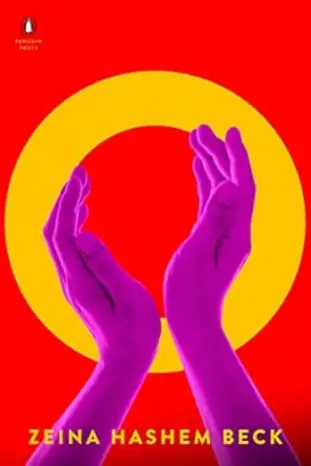
Zeina Hashem Beck is one of the best Arab female poets born in Lebanon whose work is celebrated for exploring themes like identity, exile, and language. She is celebrated for lyrical beauty, emotional depth, and blending of Arabic and English in her Arabic poetry books.
One of her famous Arabic poetry books, “To Live in Autumn“, won the Backwaters Prize. This poetry collection is a love letter to Beirut that captures the city’s vibrant life against its complex political and social life.
One must imagine
a girl dancing somewhere
with a flag in her hands.
Beck’s other Arabic poetry collection, “Louder than Hearts“, questions identity and displacement. In this collection, she uses Arabic phrases and structures in the English language with the sounds and rhythms of her native tongue.
Khandaq mon amour
I dream of the whale every night.
I have seen it when we sailed the Mediterranean.
One refugee told me he only sees the dead now
when he looks at the sea. I dream of the whale.
You can explore more of her poetry in Arabic, which includes love, loss, and other themes in her poetry collections.
There’s a little classic Arabic poetry available because Arabs had an excellent memory and didn’t write much to preserve. Therefore, we see very few Arabic poetry books from the old times.
To explore classic Arab literature, you should read Geert Jan van Gelder’s Anthology of Classical Arabic Literature.
However, that has completely changed in the past millennium, especially in modern Arab literature. There are a lot of Arabic poets who write poetry in Arabic about love and other themes. Interestingly, there are more female Arab poets than at any other time in Arab language history.
The broad spectrum of themes in Arabic poetry books is what makes people follow famous Arabic poetry.
If you have any favourites when it comes to Arab poetry or favourite Arabic poetry books, mention them in a comment!
If you’re interested in learning more about the Arabic world, check out my interview with Syrian singer Khaled Alhafez.
For more interesting reads, have a look at:
You can also subscribe to the newsletter below to get worldwide book, music, and movie recommendations straight to your inbox!
Do you want global book, music, and movie recommendations straight to your inbox?
Sign up for the newsletter below!

